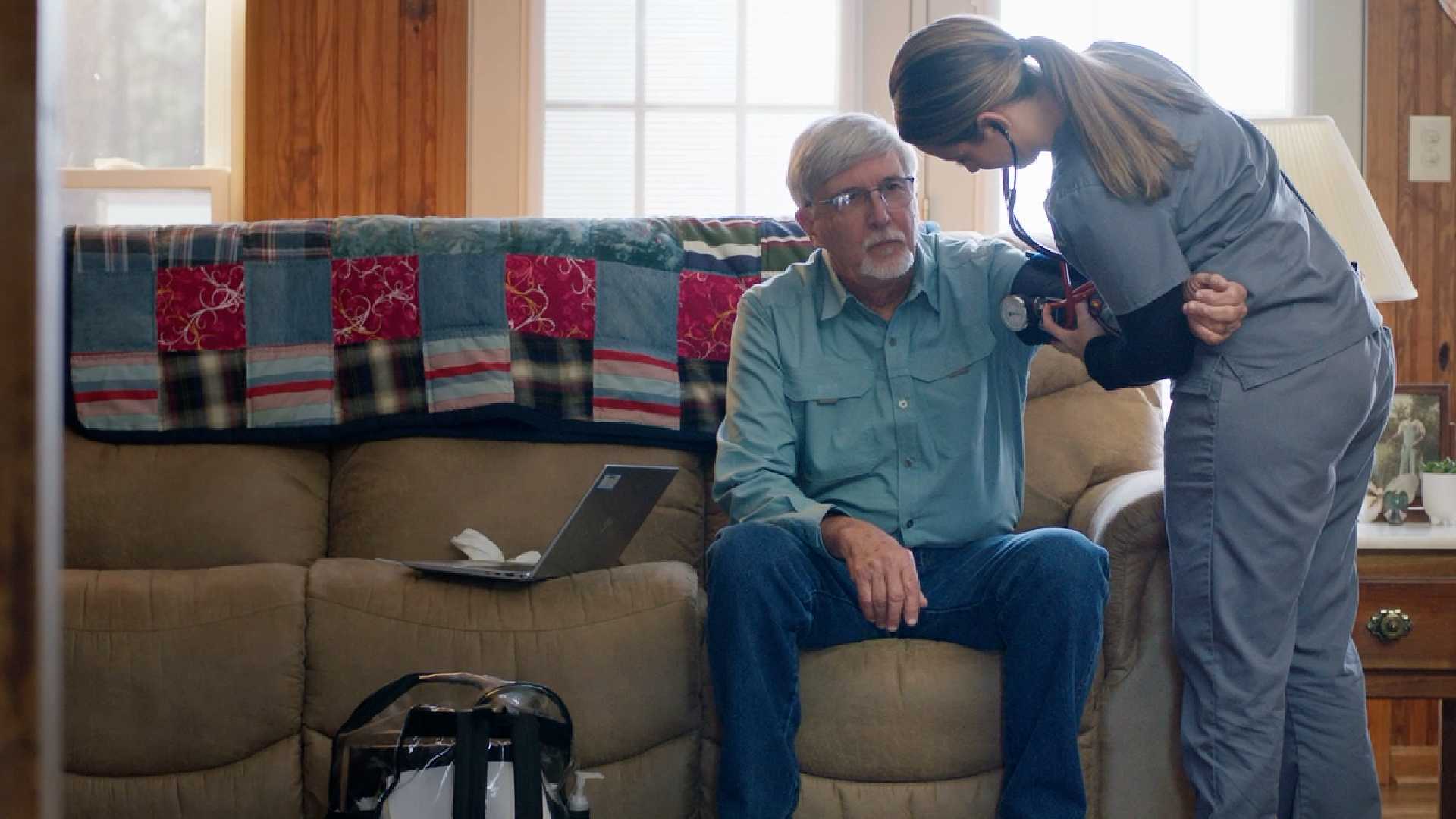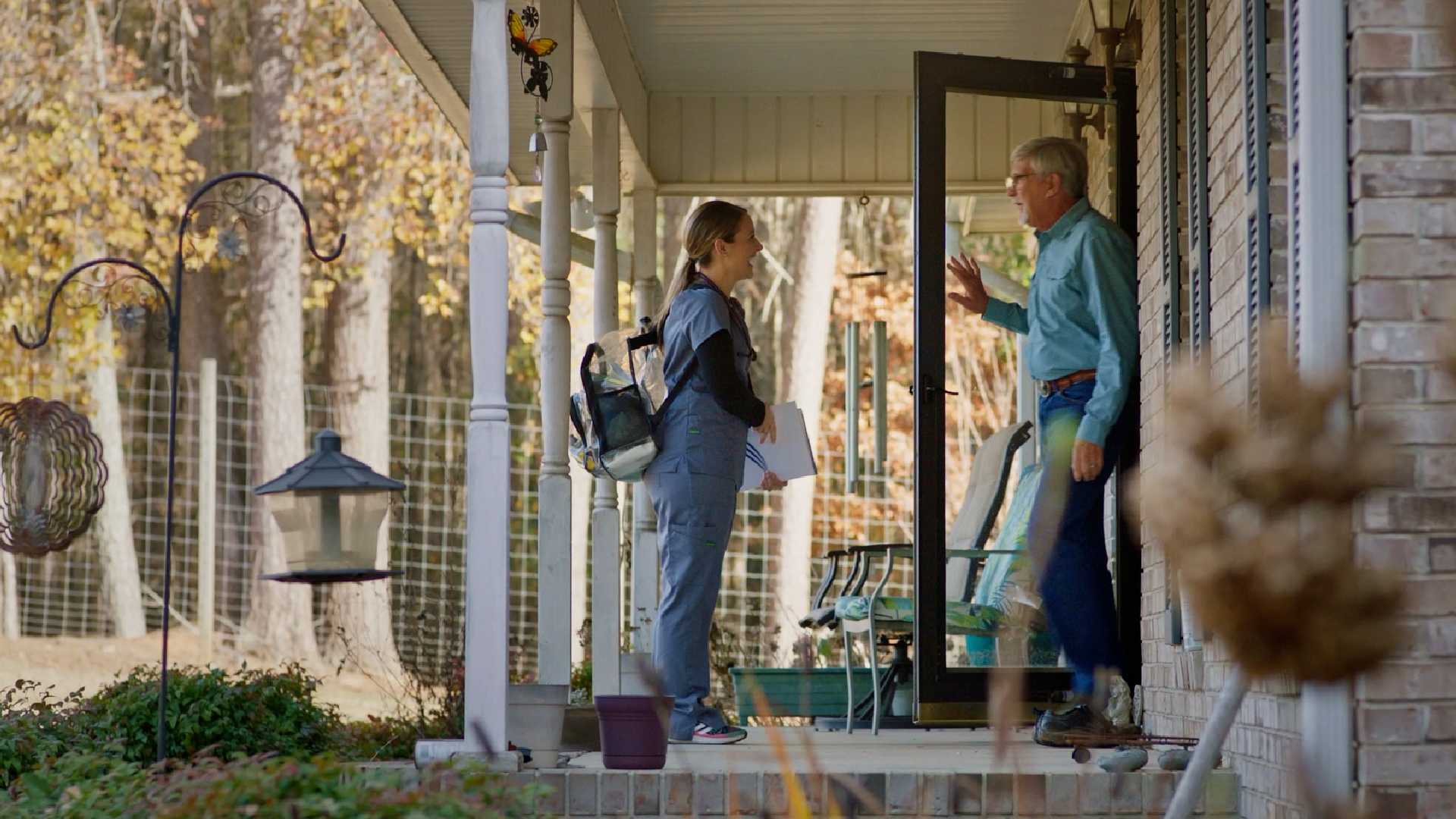| | | | | | | Presented By UnitedHealthcare | | | | Axios Vitals | | By Tina Reed · Jan 09, 2023 | | Good morning Vitals readers. Today's newsletter is 1,072 words or a 4-minute read. 📆 On the calendar: JPMorgan's annual health care conference kicks off today in San Francisco in person for the first time since 2020. | | | | | | 1 big thing: Hospitals vie for "essential" designation — and more money |  | | | Illustration: Lazaro Gamio/Axios | | | | With more than half of U.S. hospitals expected to lose money over the past year, some industry groups are pressing Congress to decide which should be designated "essential" to qualify for more federal funds, Axios' Arielle Dreher writes. Why it matters: Billions of dollars could be on the line. But there's no standard definition of a safety net hospital now, and many facilities claim to be safety nets. - States have a role in deciding which hospitals get extra funding based on the number of Medicaid patients seen or how much uncompensated care they provide. But criteria vary, and as many as a third of the funds may be reaching facilities that don't technically qualify.
Driving the news: The American Hospital Association is proposing a new designation: the metropolitan anchor hospital, or an urban safety-net facility that serves a large amount of low-income or historically marginalized individuals. - 465 hospitals would meet the definition, per the trade group, because of the uncompensated care they provide to a higher-than-average number of poor or uninsured patients.
- "We view these hospitals as a lifeline ... they are a critical access point," Aimee Kuhlman, vice president of advocacy at the AHA, told Axios.
But another industry group, America's Essential Hospitals, is asking lawmakers to designate $7 billion for its 300 members, which include Level 1 trauma care centers, burn units or neonatal intensive care units. The requests come with some big hospital chains rebounding from pandemic woes and lawmakers taking a more skeptical view of the industry, asking questions like how anticompetitive behavior could be driving up the cost of care. - "We cannot continue to subsidize hospital oligopolies," Rep. Victoria Spartz (R-Ind.) said in a statement to Axios.
Yes, but: Democrats like Rep. Lori Trahan (D-Mass.), a member of the House Energy and Commerce health subcommittee during the last session, say community hospitals reliant on public payers need special consideration. Go deeper. |     | | | | | | 2. Experts warn of another COVID wave |  | | | Illustration: Brendan Lynch/Axios | | | | The dizzying spread of the newest Omicron variant XBB.1.5 — also nicknamed Kraken — has public health experts warning of yet another potential COVID wave in the U.S. Why it matters: While the severity isn't clear yet, it's "the most transmissible form of Omicron to date," Maria Van Kerkhove, the WHO's technical lead on COVID-19, said, according to CNN. State of play: The CDC's estimates now show that the XBB.1.5 variant made up 18.3% of cases for the week ending on Dec. 31, 2022, and 27.6% of sequenced cases for the week ending on Jan. 7, Axios' Herb Scribner writes. The big picture: This comes as monoclonal antibodies have been rendered largely ineffective against current COVID variants, Politico reported. - At the same time, pandemic-era investments in virus surveillance, new vaccines and treatments are winding down.
- The public has largely abandoned mitigation strategies like masking, and there's been far lower uptake of the bivalent booster than anticipated.
What they are saying: "We've moved from complacency to frank capitulation at just the wrong time," Eric Topol, executive vice president of Scripps Research, wrote in a Washington Post op-ed. - "If XBB.1.5 is telling us one thing, it's that we can't be oblivious. We're all tired, but we're up against a force that isn't," Topol said.
|     | | | | | | 3. FTC plan to ban non-competes could affect docs | | A Federal Trade Commission proposal to ban employers from imposing non-complete clauses on workers could have a substantial impact on the health care sector. Driving the news: The FTC's new proposal would make it illegal for an employer to enter into a non-compete with a worker, and would require companies to rescind existing agreements, Axios' Emily Peck writes. - The FTC estimates that 30 million people, or 1 in 5 workers, would be affected, and the rule could increase wages by nearly $300 billion a year.
- Restrictions on workers signing with competitors is particularly relevant as more physicians leave independent practices for employment and as practices are acquired by private equity. Upwards of 90% of employed physicians reported having had non-complete clauses in their contracts, per a survey from Medscape.
What they're saying: "Existing evidence from the health care sector suggests that the proposed ban would decrease consumer prices, potentially to the tune of $150 billion a year," wrote FTC chairwoman Lina Khan. - A recent survey of orthopedic surgeons in Orthopedic Review found the majority said the agreements negatively impacted patients either by forcing them to drive long distances to maintain continuity of care (64%) or forcing surgeons to abandon patients if they seek new employment 77%).
- Yes, but: Non-competes can offer legitimate protections for trade secrets and help retain medical talent, which is important for ensuring the quality of medical services — even though it can impede patients' and doctors' rights, per a 2019 study of regulations in Germany, Britain, Spain, Switzerland and the U.S. in the Polish journal Wiadomości Lekarskie.
Be smart: The rules would not apply to non-profit health systems, thereby excluding a massive swath of the American health care workforce, Fierce Healthcare reported. What to watch: There is a 60-day comment period before the FTC could finalize the rule. |     | | | | | | A message from UnitedHealthcare | | HouseCalls can help identify and prevent health issues among seniors | | |  | | | | UnitedHealthcare's Medicare Advantage HouseCalls provide free, comprehensive wellness visits in the comfort of seniors' own homes. During visits, licensed clinicians spend up to an hour with seniors and follow up with their primary care providers to help address any health issues. Learn more. | | | | | | 4. Schools sue TikTok and Meta over mental health |  | | | Illustration: Sarah Grillo/Axios | | | | Seattle Public Schools is suing social media companies including TikTok and Meta, saying the tech giants' "misconduct has been a substantial factor in causing a youth mental health crisis," Axios' Erin Doherty writes. Driving the news: "This mental health crisis is no accident. It is the result of the defendants' deliberate choices and affirmative actions to design and market their social media platforms to attract youth," the lawsuit states. The big picture: The CDC has reported higher levels of mental distress and risky health behaviors among American teenagers, exacerbated by the pandemic. - Facebook whistleblower Frances Haugen last year testified that the tech giant is aware that some of its platforms are harmful to certain populations, including teenagers, but targets them anyway.
The other side: Meta and TikTok did not immediately respond to Axios' request for comment. - "We have invested heavily in creating safe experiences for children across our platforms and have introduced strong protections and dedicated features to prioritize their wellbeing," Google spokesperson José Castañeda said in a statement.
|     | | | | | | 5. While you were weekending |  | | | Illustration: Aïda Amer/Axios | | | | 🧹 CDC head Rochelle Walensky plans to roll out sweeping changes to handle public health emergencies. (Bloomberg) 👀 An animal sedative mixed with fentanyl brings fresh horror to U.S. drug zones. (New York Times) 👉 11 states are considering bills to restrict transgender health care. (Axios) |     | | | | | | A message from UnitedHealthcare | | HouseCalls meet seniors in their homes | | |  | | | | Millions of Medicare Advantage seniors take advantage of UnitedHealthcare's free HouseCalls program. For Jack, a free, comprehensive wellness visit from HouseCalls nurse practitioner Heather helped save his life. Watch their story. | | | | One last thing: Just in case nearly three years of a pandemic haven't been scary enough, there's now a COVID-19 horror film. - The movie, called "Sick" comes out on Peacock this Friday. Yep, that's Friday the 13th.
Thanks for reading, and thanks to senior editor Adriel Bettelheim and senior copy editor Bryan McBournie for the edits. |  | | Your personal policy analyst is here. | | | | | | Axios thanks our partners for supporting our newsletters.
Sponsorship has no influence on editorial content. Axios, 3100 Clarendon Blvd, Arlington VA 22201 | | | You received this email because you signed up for newsletters from Axios.
To stop receiving this newsletter, unsubscribe or manage your email preferences. | | | Was this email forwarded to you?
Sign up now to get Axios in your inbox. | | | | Follow Axios on social media:    | | | | | |








No comments:
Post a Comment